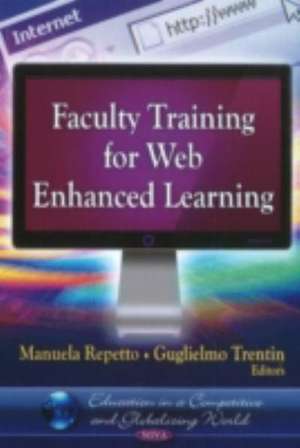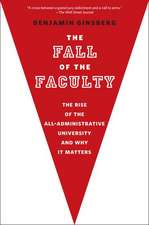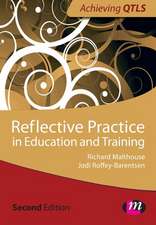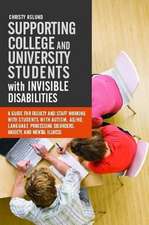Faculty Training for Web Enhanced Learning
Editat de Manuela Repetto, Dr. Guglielmo Trentinen Limba Engleză Hardback – 29 iun 2011
Preț: 1203.87 lei
Preț vechi: 1648.61 lei
-27% Nou
Puncte Express: 1806
Preț estimativ în valută:
230.36€ • 241.12$ • 191.73£
230.36€ • 241.12$ • 191.73£
Carte disponibilă
Livrare economică 10-24 martie
Preluare comenzi: 021 569.72.76
Specificații
ISBN-13: 9781612093352
ISBN-10: 1612093353
Pagini: 221
Ilustrații: Illustrations
Dimensiuni: 182 x 255 x 21 mm
Greutate: 0.67 kg
Editura: Nova Science Publishers Inc
ISBN-10: 1612093353
Pagini: 221
Ilustrații: Illustrations
Dimensiuni: 182 x 255 x 21 mm
Greutate: 0.67 kg
Editura: Nova Science Publishers Inc
Cuprins
Preface Chapter 1. Faculty Training as a Key Factor for Web Enhanced Learning Sustainability;pp. 1-19 (Guglielmo Trentin and Serena Alvino, Institute for Educational Technology, National Research Council, Italy) Chapter 2. A Frameworkto Investigate Adoption of Computer Supported Collaborative Learning by Teachers at University;pp. 21-36 (Stefano Renzi and Jane Klobas, Bocconi University, Italy and others) Chapter 3. Five Reasons for the Recluctance of Academic Faculty to Employ a Web-Enhanced Teaching;pp. 37-48 (Sarah Guri-Rosenblit, The Open University of Israel) Chapter 4. Teacher Resistance to New Technologies: how Barriers to Web Enhanced Learning can be Overcome;pp. 49-59 (Steve Wheeler, University of Plymouth, UK) Chapter 5. Promoting Web-Enhanced Learning in University Teaching:Current Practice in Web-Enhanced Faculty Development;pp.61-77 (Gail Wilson, Southern Cross University, Australia) Chapter 6. Beginning to Begin;pp. 79-94 (Kim Floyd, Cathy Galyon Keramidas, Sharon Judge and Tara Jeffs, West Virginia University, USA and others) Chapter 7. Changing Technologies/Renewing Pedagogies: Implications for University Teaching and Learning;pp. 95-108 (Karen Starr, Elizabeth Stacey and Lauri Grace, Deakin University, Australia) Chapter 8.eCompetence to Move Faculty towards a Sustainable Use of Learning Technologies in Higher Education;pp. 109-124 (Dirk Schneckenberg, ESC Rennes School of Business, France) Chapter 9. Pedagogy of the Web: Improving Practice Teaching and Learning Online;pp. 125-144 (David Whittier, Boston University School of Education, USA) Chapter 10. From Pedagogical Research to Embedded e-Learning;pp. 145-157 (Harvey Mellar and Magdalena Jara, London Knowledge Lab, Institute of Education, University of London, UK) Chapter 11. Cultural Impact on Online Education: how to Develop Self-Awareness in Online Teachers;pp. 159-172 (Manuela Milani, Universite de Cergy-Pontoise, France) Chapter 12. Faculty Learning Communities for Web-Enhanced Learning;pp. 173-187 (Anne H. Moore, Shelli B.Fowler and Jennifer L.V. Sparrow, Virginia Tech, USA) Chapter 13. The WEL project at the University of Genoa: Effects on Faculty Attitudes and Teaching Practices;pp. 189-203 (Manuela Repetto, Institute for Educational Technology, National Research Council, Italy)) Biographies Index














